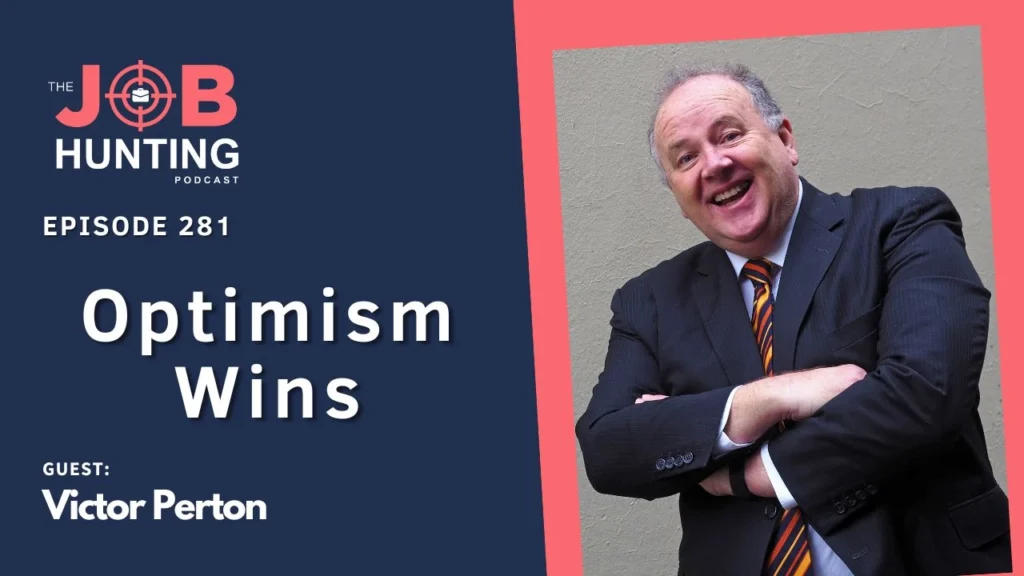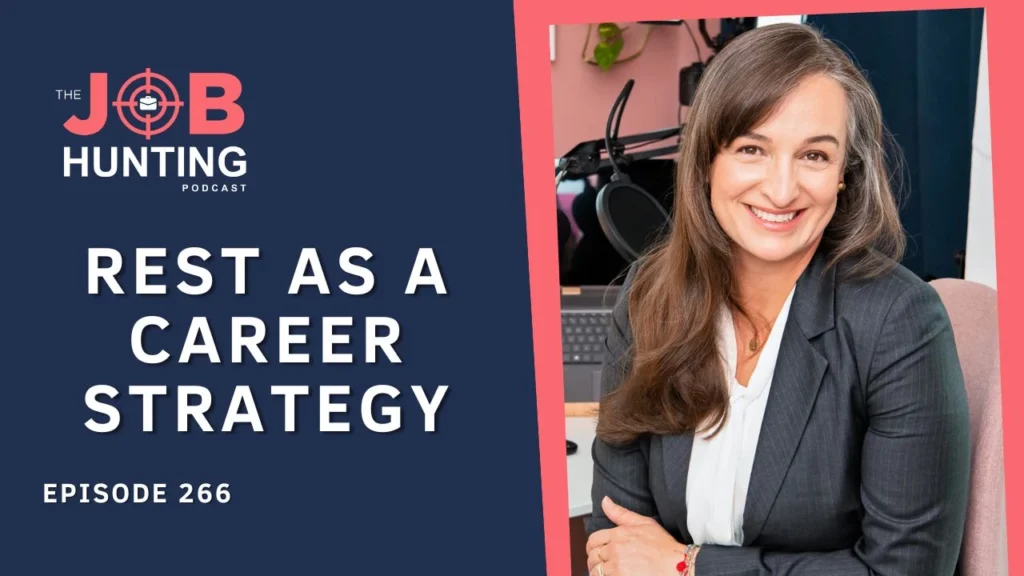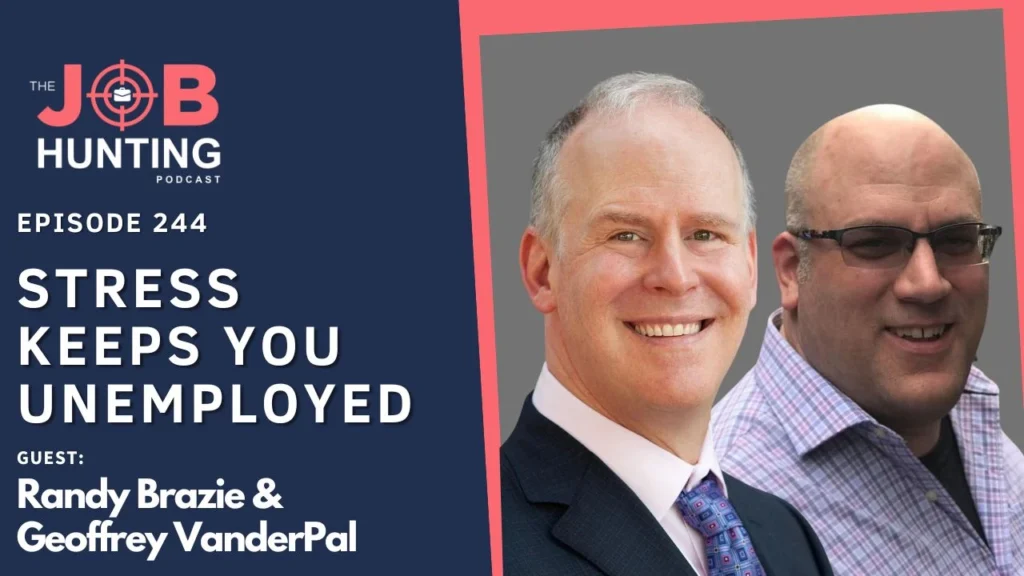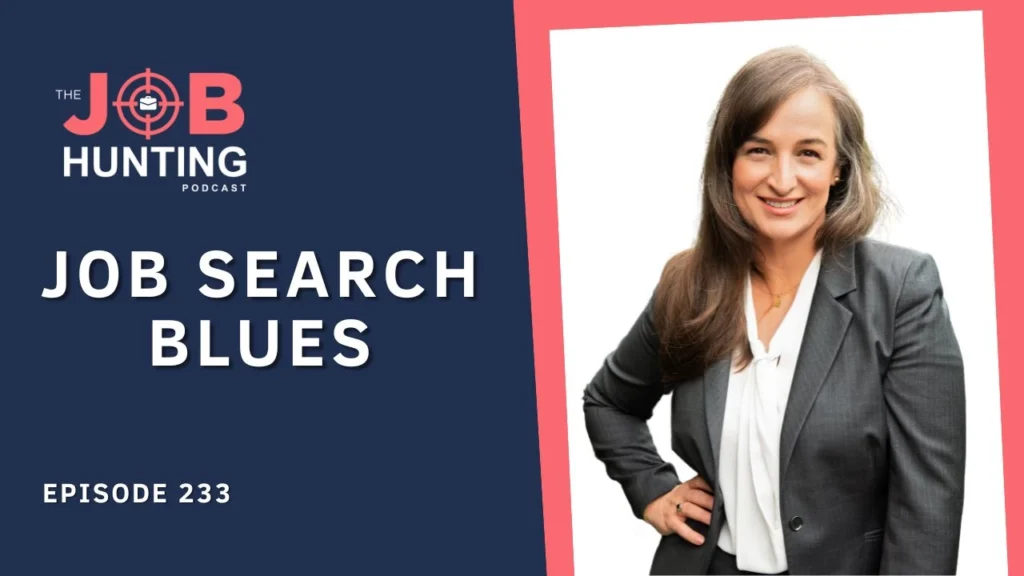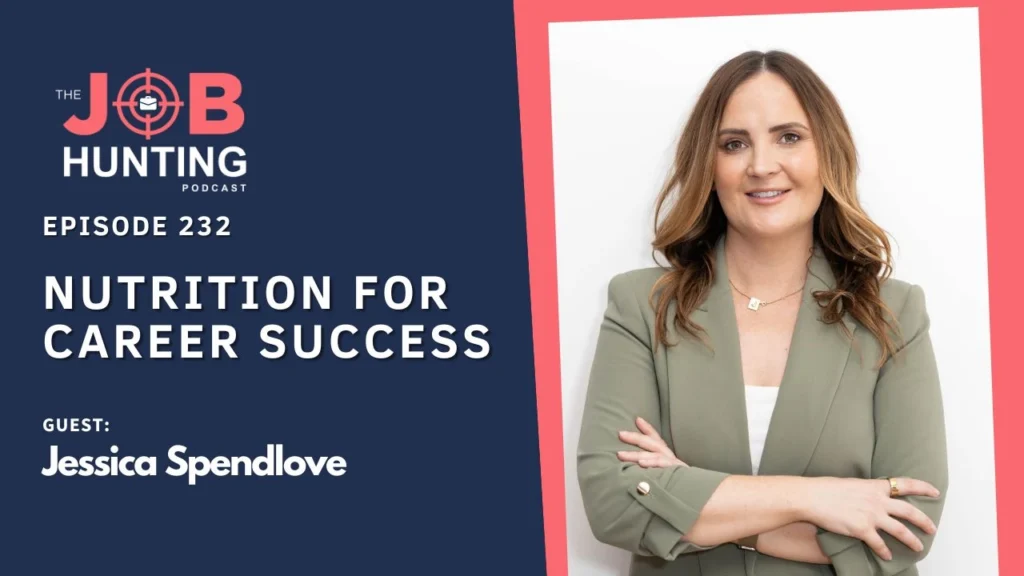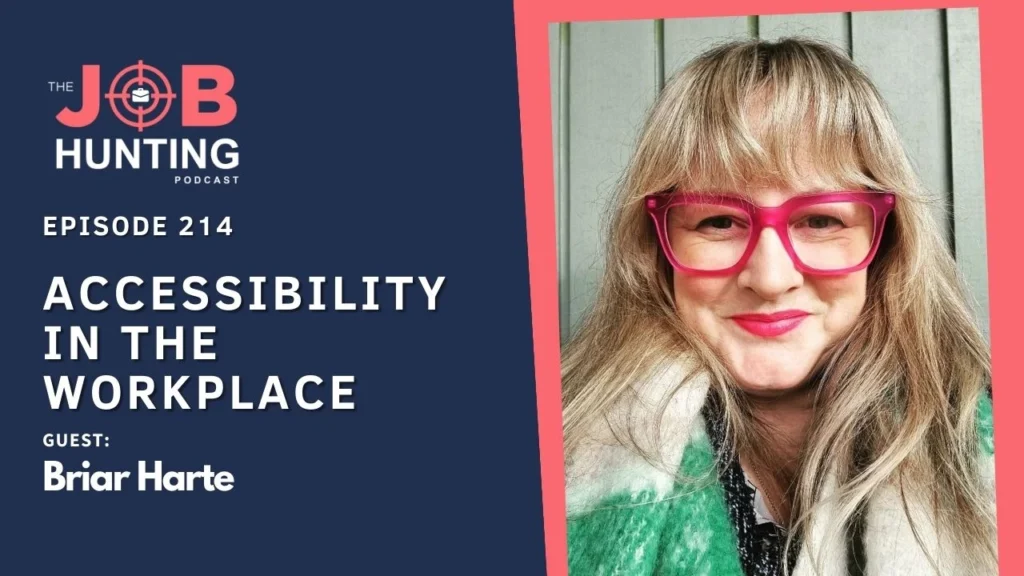Hello, how are you? I hope you’re doing well. But if you’re not, that’s okay too.
Today’s episode is particularly close to my heart. It stems from personal experience and the experiences shared by my clients, listeners, and individuals who send me messages about job hunting. I realize I haven’t addressed this topic enough on the podcast.
Today, we’re going to discuss loneliness in job hunting, which is a significant issue. I have notes, so if you’re watching on YouTube and see me reading, it’s because I’ve done my research and want to approach this topic correctly.
Loneliness can be profound and challenging, and ideally, you would seek help for it. However, it’s crucial to note that this is not advice but rather tips, ideas, and stories from my personal experience. I’m here to support you as a friend.
With that disclaimer out of the way, I hope you stick around. I’m going to share some strategies that have helped both me and some of my clients. Loneliness in job hunting is peculiar because you can feel completely isolated in your job search, your insecurities, and anxieties, even when surrounded by people.
It’s not just about being alone at home or single; it’s about being the only one in your circle without a job, or following an unconventional career path different from what your friends and family expected. Trying something different can be isolating because people may not understand or share your experiences.
You might find no one to discuss your career issues or dreams, or perhaps you have people to talk to but feel unheard or misunderstood due to their different lived experiences and career trajectories. This is often the case for clients who are the first in their family to enter the corporate world, come from a blue-collar background, or are the first to attend university. Being seen as a success can be quite lonely.
The issue of loneliness in adults has garnered a lot of attention lately, particularly during and after the pandemic. This interest extends to workplace loneliness and how our work environment has become more isolated, impacting how we network and access our connections. I’ve always been keen on networking, but I can see how, had I lost my job during the pandemic, it would have been much harder to reach my network, with everyone staying home and not visiting business districts and offices as often. They might only go a few days a week.
And there is a lack of the physical, incidental contact that used to occur frequently in the past—an opportunistic approach to networking, where you might reach out for advice or mention that you were looking for work. These days, it needs to be more active than passive. You’ve probably noticed this change.
There is so much data on this topic that I want to share with you because it provides context and, in many ways, knowing about loneliness can make us feel less lonely. The U.S. is a great source for this data, and although this podcast is mostly listened to in the U.S., I’m broadcasting from Australia. In the U.S., one in three adults have reported feeling lonely at least once a week this year. This is prevalent across all ages but is mostly seen in young adults—people between 18 and 34, with about 30% of this age group feeling lonelier more frequently.
This data shows that loneliness affects various age groups, and sometimes you might feel lonely because you’re young, single, or older and no longer have childhood friends living nearby. There are always potential explanations, but that doesn’t make your feelings of loneliness any less real.
Then, there’s the issue of how different generations perceive loneliness. Millennials, those born between 1981 and 1996, report a high incidence of loneliness, with 73% acknowledging feelings of loneliness. This contrasts with 30% of Generation X—my generation, people born between 1965 and 1980—who only occasionally report feeling lonely.
If you’re older than me and considered a senior citizen (born before 1965), then 28% report feeling lonely. Senior citizens often live alone, yet it’s interesting that the perception of loneliness seems higher among millennials. This fascinates me because it speaks to how our mindset and perceptions of our circumstances can vary based on our education, culture, personality traits—whether we’re introverts or extroverts, and so forth.
Regarding gender, loneliness is almost equally distributed between men and women, with 46% of men and 45% of women describing feelings of loneliness. Interestingly, however, college women report feeling lonelier than men. So, if you’re a younger woman in college, you might feel lonelier than your male peers, which is noteworthy.
I’m also concerned about the health implications of loneliness. When we think about health risks, we usually consider smoking, poor diet, and heart disease—all things that are visibly detrimental. However, we rarely consider how loneliness, high stress levels, and lack of sleep can be just as harmful in the long term if they become chronic. These factors can be significant health risks, comparable to smoking or unhealthy eating habits, and we need to recognize and prioritize them in our minds.
So, we may need to consider our social situation and activate it, not just to become more popular or less lonely for social reasons, but for health reasons, right? Changing the way we live and work is crucial. For some, working from home is fantastic—it’s great for those raising kids, pursuing hobbies, or managing side hustles. However, for many, it can be detrimental to their mental health. I’ll add some articles in the episode show notes for you to reflect on this.
Before the pandemic, about 30 percent of those living alone struggled with loneliness. Interestingly, not everyone living alone feels lonely, but the data was around 30 percent pre-pandemic, compared to lower percentages among those living with other adults and children. So, living with others generally correlates with lower feelings of loneliness. Although, as I’ve said before, I believe loneliness and being alone are two distinct things. Many of my clients express feeling lonely or demonstrate how alone they feel in their job search, their struggles, or their aspirations, especially when their partner doesn’t support them or their family doesn’t understand.
This feeling of loneliness can arise regardless of whether you are university educated or not, wealthy or not—it affects people across all demographics and underscores the importance of treating loneliness as a public health issue.
Interestingly, most of my clients are in their 40s, 50s, and 60s, but just recently, I received a contact form from a 17-year-old asking for advice. It was really endearing, and although I’m eager to help, my content is primarily tailored for an older, more experienced demographic. Understanding that loneliness can affect anyone, even those who are successful, and recognizing the nuances of this sentiment is crucial. We need to develop strategies to overcome it, as it can significantly impact both personal and professional success, especially during job hunting. We aim to combat anxiety, stress, loneliness, and sleep deprivation during your job search, as these challenges can indeed affect your performance during the recruitment process. We can’t let that happen, can we? That’s why you’re listening to this episode of the Job Hunting Podcast.
So, now we understand that loneliness is pervasive, affecting both men and women, with some generational differences, though not dramatically in my view. There’s also research examining loneliness among unemployed individuals, highlighting the bidirectional relationship between loneliness and unemployment.
Right, there’s definitely a correlation there. If you’re unemployed, you’re likely to feel lonely, and it doesn’t matter who you are—you could be a CEO or a truck driver. That feeling of loneliness will shadow you, and it’s important to understand that optimizing your job search and overcoming unemployment involves addressing a variety of issues.
It’s not just about getting your resume right or learning how to network effectively. It’s about dealing with your inner challenges. Research conducted during the pandemic, which primarily focused on young people, found that unemployment was independently associated with greater psychological distress. This includes measures like trust, optimism, and mastery—concepts that are crucial for assessing psychological states because they are well-developed and significantly indicative of mental health.
These important psychological measures—trust, optimism, and confidence (which is akin to mastery)—decrease when you’re unemployed. Meanwhile, financial strain and loneliness increase. Although these findings were observed in young people, they are unsurprising and widely applicable.
Why is this significant? Because these factors can be disastrous during the recruitment process, where you need to impress others, many of whom do not know you personally. You need to exhibit trust, optimism, hope, a sense of mastery, financial security, and engagement.
If you’re aware that unemployment can lead to these issues, it’s crucial to manage them proactively. This might involve assessing yourself early in the morning, allowing yourself to feel the weight of your situation but also finding the strength to bounce back and reset. The study from the pandemic is particularly important because it underscores the consistent link between unemployment and psychological distress across different individuals, regardless of their resources or risk factors.
This applies to everyone—rich or poor, highly educated or not. I often speak with clients who can afford private coaching, and yet, they are still incredibly concerned about their financial situation. The financial strain they feel is real, even if objectively, they might appear financially secure. This subjective feeling is very personal and affects everyone.
Understanding the interplay between your employment status and mental health is crucial. Securing a job doesn’t automatically resolve all issues. I know from experience with my clients that even after landing a job and signing contracts, the first 90 days can be incredibly stressful.
During the probation period, many individuals struggle not just with the tasks at hand but with understanding what is expected of them. This adds to the multitude of stressors associated with employment. However, let’s focus on the period of unemployment you might be experiencing. We need to develop strategies to support not only the job search but also to address mental health, emotional well-being, and allow time for socializing, mentoring, coaching, friendships, hobbies, sleep, and exercise.
This podcast has evolved into a holistic exploration of how to conduct a high-performing job search, emphasizing that it’s about much more than just crafting a perfect resume.
Dealing with job searching in silence is what most people need to overcome. It’s almost imprinted in our minds that without a job, we’re less of a person. This mentality can prevent us from opening enough doors to let more opportunities in. The waiting and silence, the disconnection from the working world, and the lack of control over the situation can be incredibly anxiety-inducing.
In past episodes, we’ve highlighted how, despite being common, career transitions can still feel incredibly personal and isolating. We are quick to support others when they lose their jobs or face career challenges, but when it comes to ourselves, we often hesitate to ask for help or share our feelings.
Job search loneliness isn’t just about being physically alone; it’s about feeling disconnected, unsupported, and uncertain about your future. Recognizing these feelings as part of the process, understanding that they are likely to happen, and actively addressing them is crucial.
I speak about these issues as if they were always easy for me to handle, but of course, they weren’t. The reason I became a career coach is because of the extensive experiences I’ve had throughout my career, both good and bad. I’ve always been someone who reflected deeply, probably more than most, and I took notes on my experiences, knowing early on that I wanted to be a coach.
I’ve often felt alone in my career decisions. I felt judged for making choices that were counterintuitive, and sometimes, in hindsight, even I thought they were unwise—leaving perfectly good jobs or opportunities behind to embark on something uncertain, starting from scratch again.
This made it difficult for others to relate to me, and I often felt isolated due to my stubbornness, perseverance, and grit—call it what you want. When I first looked for work in Australia, I felt completely alone and desperate, wondering what I was doing in a country where nobody knew me, where there was no connection to my past and what I could do.
Having no reputation here, no equity, no awareness of anything—all those connections we take for granted, like high school friends, family, university connections, and former bosses—when you’re isolated from these and everything is out of touch, perhaps even in a different language and on the other side of the world, the loneliness can be overwhelming.
It was really just a series of fortunate, small steps that I took, slowly moving towards my first job in Australia, and it came from being extroverted. As I age, I’m becoming more introverted, but initially, my extroverted nature helped me open doors and seize opportunities, many of which were unpaid at first, but eventually, I landed my first gig. I see similar patterns with my clients—once they recognize the importance of keeping all doors and windows open, getting out of the house, having conversations, and being in the right place at the right time. Even if nothing happens at first, persistence pays off.
The clients who have been successful, especially post-pandemic, are those who are out attending events, nurturing their connections, and asking for advice. These actions might seem more challenging when you’re unemployed, but they are crucial and should continue to build a stronger, better safety net for the future.
Now, let’s talk about strategies in a more structured way. Yes, the feeling of loneliness can be overwhelming, but there are strategies to help navigate this time. We’ve touched on some already, but let’s ensure we address them directly.
Firstly, networking—yes, that word we hear so often. Staying connected with your professional community is vital. Engaging in events, online forums, and professional groups is essential—it doesn’t all have to be face-to-face. It can be a webinar, online, through a Facebook group, or a LinkedIn group. We’ve discussed the importance of building support networks in previous episodes, like the one about alumni networks, which are particularly important. I’ll put links to some of these episodes in the show notes for you to explore further.
If you haven’t mastered networking yet, or if you’ve felt disconnected from your network during the pandemic, you’re not alone—many have, myself included. This is the first step to overcoming loneliness.
The second strategy is establishing a routine and structure. I’m a big fan of routine and structure. Let’s say you’re an introvert and not a big networker. Having a structured routine can be just as effective. These are pillars of a successful approach to job hunting and dealing with unemployment, and they don’t all have to look the same. If your strength lies in being organized rather than networking, then focus on leveraging that strength.
Creating a daily routine really helps give your day purpose and structure and reduces feelings of being out of control regarding your career. Remember, you are still very much a professional, even if you are not currently employed. Therefore, it’s important to focus on building a routine that includes upskilling, reskilling, professional development, and career development.
Applying for jobs should only occupy a percentage of your day; it’s not what you should be doing all day long. It’s part of a comprehensive list of activities that contribute to a full-time job search mentality. We have a resource for this on our website, the optimized job search schedule, so be sure to check it out. There will be a link in the show notes for you.
Then, focus on self-care, especially if you’ve just been made redundant, lost your job, or have been let go. Prioritize self-care—engage in physical activities, take time off, go on a holiday if possible, pursue a hobby, and spend time with supportive people. This can be incredibly beneficial for unwinding from the stressors of your previous job and the stress of job loss. Your brain needs time to rewire without these stressors.
We have episodes under the wellness category on the Job Hunting Podcast website that focus on these topics. If you feel this is your weak link, I encourage you to explore these episodes.
The fourth pillar is getting support. This could be through structured courses like the ones I offer. I have a program called Research Your Career, which is short and effective. I also have a more comprehensive program called Job Hunting Made Simple. I’m planning to reopen enrollments for Job Hunting Made Simple soon. This year, I’ve already run a session, and due to personal scheduling changes, I’ll be offering it again sooner than initially planned. Join the waitlist—there’s a link in the show notes.
Group coaching is fantastic. Participants not only learn from me but also from each other. The networking opportunities are incredible, and I make sure that the participants are a good match for one another. For example, if two participants from the same organization join, I’ll have a discussion to ensure it works for both. If not, the one who registered later may need to step back. I pay close attention to these details to ensure the best experience for everyone involved.
So I just refund the money and explain what happened. We think about different alternatives to ensure everyone gets the support they need. It’s very rare that this happens; it has only occurred once. Most of the time, everything goes smoothly, and the Chatham House Rule applies—it’s completely confidential. What happens in the group stays in the group, and if anything, there’s exponential learning from me and from everyone else.
Being part of a group of professionals looking for work together definitely makes you feel less lonely. Remember, being between jobs is just a phase; it’s temporary and an opportunity for you to rest, relax, learn more about yourself, and reset your career. That’s the essence of my program, the short program I mentioned earlier.
Every career will have its highs and lows, great times and tough times. It’s unrealistic to think that a career spanning 20, 30, or 40 years won’t have its down periods. Know that you’re not alone in this journey.
The statistics I shared are meant to validate the feeling of loneliness—it’s real, and we shouldn’t try to mask it or ignore it. There are ways to navigate through this, and I want you to stay connected with this podcast, stay active in your job search, and stay active in your social life.
Remember, we have a whole bunch of other episodes here that can give you more insight on the topics we discussed today. Check the episode show notes for additional episodes, articles to read and reflect on—I found two or three that I think will be great to share with you.
If you haven’t subscribed to my newsletter yet, you might want to do that. I often add details there that I don’t share anywhere else. Plus, if you’re interested in group coaching when it opens again, I’ll let you know all the services and ideas I have for my subscribers through the newsletter. It’s a good resource to have, even if you’re not job seeking right now—it’s there when you need it.
In the show notes, you’ll also find a link to my career coaching services and courses, so have a look at that if you need extra support. Thank you so much for joining me on The Job Hunting Podcast. Please give this show a five-star rating if you’re listening on Apple or Spotify. On Apple, you can even write a review, which would really warm my heart. If you’re watching on YouTube, hi there! You can subscribe, like, and leave a comment. These small gestures mean a lot to me; they help grow my business and let me understand what you enjoy and why.
I’ll see you next time. Bye.


